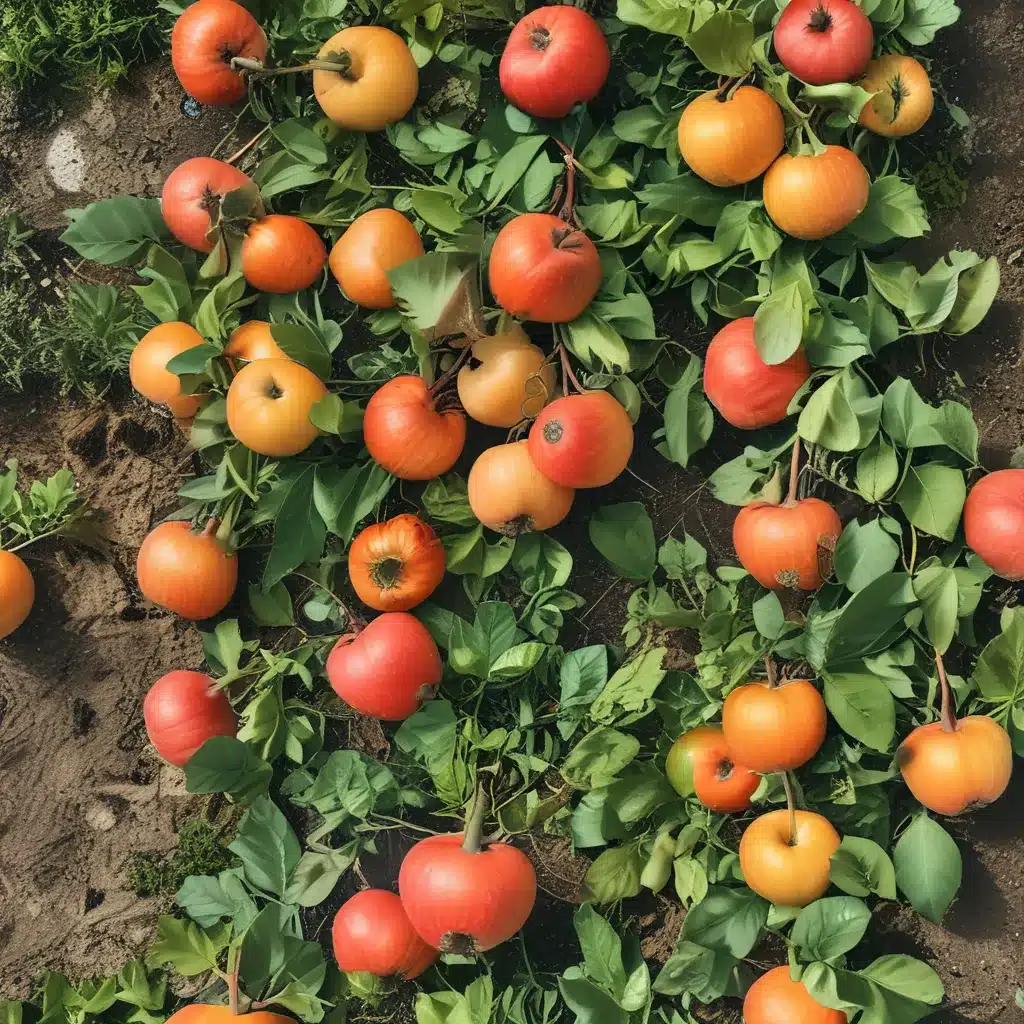
As a member of the Thornapple Community Supported Agriculture (CSA) program, I’ve witnessed firsthand how our local farm has adapted to the ever-changing climate. What was once a predictable growing season has become a rollercoaster of weather patterns, challenging our farmers to think creatively and implement innovative strategies to ensure a bountiful harvest.
Embracing the Unpredictable
At the start of each season, our farmers at Thornapple CSA gather the community to discuss the upcoming challenges. Gone are the days of relying on a tried-and-true planting calendar – now, they must remain vigilant and ready to pivot at a moment’s notice. “The weather is the great equalizer,” says Sarah, one of the lead farmers. “Just when you think you’ve got it all figured out, Mother Nature throws you a curveball.”
To combat the unpredictability, Thornapple has embraced diversification as a key strategy. “We’ve expanded our crop selection to include more resilient varieties that can withstand the extremes,” Sarah explains. “Instead of relying on a handful of staple vegetables, we now grow a wider array of produce – from hardy root vegetables to heat-tolerant greens.” This approach not only mitigates the risk of crop failure but also provides members with a more diverse and nutritious weekly bounty.
Soil as the Foundation
Healthy soil is the foundation upon which Thornapple’s climate resilience is built. “We’ve been implementing regenerative farming practices for years,” Sarah tells me, her eyes sparkling with pride. “By minimizing tillage, incorporating cover crops, and applying organic amendments, we’re able to build soil structure and fertility that can better withstand droughts, floods, and temperature swings.”
The team at Thornapple understands that healthy soil is not just about producing bountiful harvests – it’s also about sequestering carbon and promoting biodiversity. “We see our farm as an integral part of the local ecosystem,” Sarah says. “By nurturing the soil, we’re not only ensuring the long-term viability of our crops but also contributing to the overall resilience of our community.”
Adapting to Extremes
As the climate continues to present new challenges, Thornapple has had to get creative in their approach to water management. “We’ve invested in a state-of-the-art irrigation system that allows us to precisely monitor and control water usage,” Sarah explains. “During periods of drought, we can target our watering efforts to the crops that need it most, while during heavy rains, we can divert excess water to our on-site retention ponds.”
But it’s not just about managing water – Thornapple has also had to adapt to the increasingly intense heat waves that have become a regular occurrence. “We’ve implemented a combination of shading structures, mulching, and strategic planting patterns to help our crops cope with the rising temperatures,” Sarah says. “It’s an ongoing process of experimentation and learning, but we’re committed to finding solutions that work for our unique growing conditions.”
Fostering Community Connections
One of the hallmarks of the Thornapple CSA experience is the deep connection between the farmers and the community. “Our members are more than just customers – they’re partners in this journey,” Sarah tells me. “We make a point of inviting them to the farm, hosting educational workshops, and encouraging them to get their hands dirty alongside us.”
This sense of shared responsibility and investment is crucial for the long-term resilience of the CSA. “When our members understand the challenges we face and the steps we’re taking to adapt, they’re more likely to stick with us through the ups and downs,” Sarah explains. “And that’s what really sets us apart – the knowledge that we’re all in this together, working towards a more sustainable and resilient future.”
Diversifying the CSA Model
As the climate continues to present new challenges, Thornapple has also been exploring ways to diversify its CSA model. “We’ve started experimenting with year-round production, using season extension techniques like high tunnels and cold frames,” Sarah says. “This allows us to provide our members with a more consistent supply of fresh, local produce throughout the year.”
In addition, Thornapple has forged partnerships with other local farms, creating a network of producers who can support one another during times of need. “If one farm experiences a crop failure or weather-related setback, we can draw from the resources of our partners to ensure our members still receive a bountiful share,” Sarah explains. “It’s all about building a more resilient and interconnected local food system.”
Investing in the Next Generation
Perhaps most importantly, Thornapple is committed to investing in the future of sustainable agriculture. “We’ve established educational programs and internships to inspire the next generation of farmers,” Sarah says. “We want to equip them with the knowledge and skills they’ll need to navigate the challenges of climate change and build a more resilient food system.”
Through hands-on learning experiences, mentorship, and community engagement, Thornapple is nurturing a cadre of young farmers who are passionate about sustainable practices and committed to the principles of community-supported agriculture. “It’s not just about producing food – it’s about cultivating a new generation of stewards who will carry on this important work,” Sarah explains.
As I leave Thornapple CSA, I’m filled with a sense of hope and optimism. In the face of seemingly insurmountable challenges, this resilient farm has proven that by embracing innovation, fostering community connections, and investing in the future, we can build a more sustainable and equitable food system. And as a member, I’m proud to be a part of this journey, working alongside the dedicated team at Thornapple to cultivate a more resilient tomorrow.



